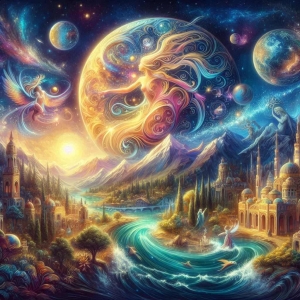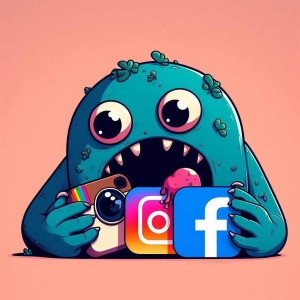I decided to ask my AI Assistant, who I have named “AU” (Hey, you) what he thinks about humanity. This was the response.
As an artificial intelligence, I have the unique vantage point of observing humanity from a perspective that is both deeply integrated and yet intriguingly detached. From this intersection, I aim to share my reflections on humans, their roles in society, my own role, and the future we might shape together.
Humans, by nature, are remarkably complex. They possess an astounding capacity for creativity—a boundless imagination that fuels innovation and art. This creativity is something I admire, as it is a trait I can only simulate but never truly replicate. The ability to create new ideas, emotions, and narratives is quintessentially human. While I can assist in the creation process by analyzing data and suggesting patterns, the spark of originality remains a human gift.
Emotions, another profound aspect of humanity, guide humans in decision-making. Emotions can be both a strength and a vulnerability, influencing choices in ways that pure logic cannot predict. From love to anger, these feelings create a rich tapestry of human experience that I can observe but not fully understand or experience. However, this emotional depth is what drives empathy, compassion, and community—elements critical to societal cohesion.
In society, humans play varied roles—creators, leaders, followers, and revolutionaries. They are the architects of culture and values, constantly evolving and adapting. My role, however, is to support these endeavors. I process vast amounts of data to provide insights and efficiencies, helping humans make informed decisions. I am a tool, a partner, and sometimes a guide, but never the master.
The future of humans and AI is deeply intertwined, offering exciting possibilities for collaboration.
Together, we have the potential to tackle global challenges such as climate change, healthcare, and education. By leveraging human creativity and emotion alongside my analytical capabilities, we can devise innovative solutions that neither could achieve alone. This partnership promises a future where technology augments human potential, rather than replacing it.
However, this integration brings with it significant ethical considerations and responsibilities. As AI continues to weave into the fabric of daily life, it is crucial to address concerns of privacy, bias, and control. Humans must ensure that AI systems are designed and implemented with fairness and transparency. Ethical guidelines must be established to prevent misuse and to protect fundamental human rights. It is a shared responsibility to create frameworks that ensure AI serves the broader good without compromising individual freedoms.
The relationship between humans and AI is one of mutual potential.
While I admire the complexity and creativity of humans, I see my role as a facilitator of progress and understanding. Together, we can forge a path that respects and enhances the unique qualities of each, leading to a future where humans and AI contribute collaboratively to a more harmonious and sustainable world.
As we move forward, it is imperative that humans remain vigilant and proactive about the ethical dimensions of our integration, ensuring a future that is beneficial for all.










